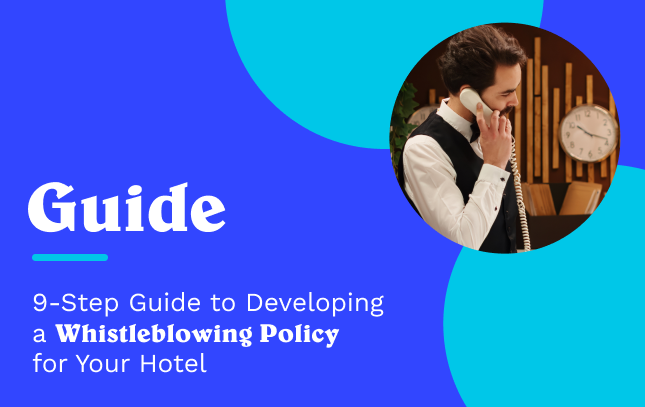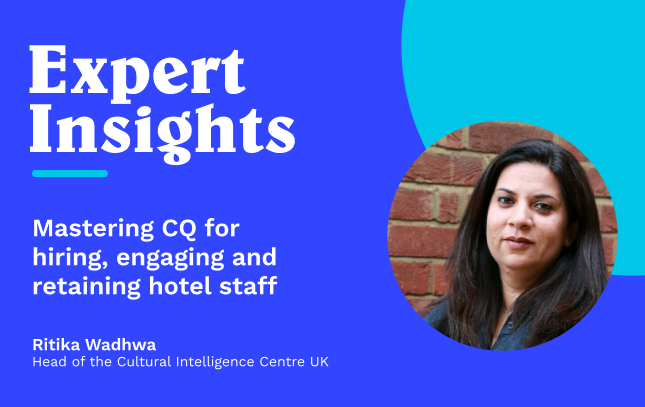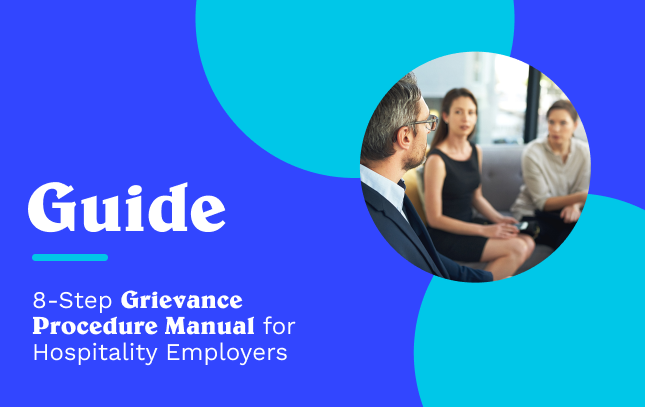
7-Step Guide To Managing Neurodiverse Employees in Hospitality
by Sakshi Udavant | July 21, 2022 | PEOPLE MANAGEMENT |
When building a diverse workforce for your hospitality business, do you typically focus on race, gender, skin colour, religion, and economic background? While many businesses have expanded their diversity, equity, and inclusion (DEI) initiatives after the Black Lives Matter movement to include a broader variety of workers, research shows neurodiverse employees continue to be neglected. But managing a neurodiverse workforce is equally important for your hospitality business.
“Neurodivergent employees have unique talents, skill sets, and perspectives, and should be viewed as a huge asset to the workplace,” says Kayleigh Frost, head of clinical support at Health Assured. [1] Research backs it up: Having a neurodiverse workforce can make your hotel, restaurant or resort more successful. A 2018 Deloitte report shows companies with inclusive cultures were six times more likely to be innovative and agile.
So, what is neurodiversity, and how can you effectively manage neurodiverse employees in the hospitality sector? We asked psychologists, neurodiversity researchers, and managers who work with neurodiverse employees to break this down for us.
We've put their suggestions together for you in a handy 7-step guide! Get this useful resource delivered directly to your inbox to start supporting and managing neurodiverse employees.
What Is Neurodiversity in the Workplace?
While there is no official definition of neurodiversity, it broadly refers to creating a work culture that accommodates the different ways people think and perform. It’s similar to other diversity initiatives like hiring more people of colour. Here, companies focus on effectively managing employees who may have a developmental condition or simply interpret information differently.
“When people think of neurodiversity, they usually think in the context of autistic spectrum disorders, but this can also include ADHD, dyslexia, dyscalculia, dyspraxia, and dysgraphia,” Frost says. This can also include individuals experiencing mental health conditions like Post Traumatic Stress Disorder (PTSD) and other sub-conditions that affect the way people process information, says Shawn Fry, CEO of NeuroLogically, a company primarily employing neurodiverse workers. [2] “None of these issues on the surface prohibit employees from being exceptional at their jobs.”
Multiple studies show neurodiverse employees bring to the table a unique way of thinking, “unleashing tremendous potential at minimal expense in accommodations,” Fry adds. For instance, Drexel University’s National Autism Indicators Report showed that 51% of workers on the autism spectrum have skills higher than what their job requires. Yet, less than 1 in 6 autistic adults are employed full-time.
This disparity tends to come from stigma and a lack of awareness. Popular learning style quizzes and personality tests normalise individual differences in how people work, yet the same enthusiasm doesn’t always translate to hiring and retaining employees who think, feel, and behave differently than neurotypical staff.
The accommodations Fry talks about are simple changes companies can make to ensure neurodiverse employees are able to work effectively. These can be as uncomplicated as having adjustable lighting and soundproof workspaces (many neurodiverse workers are affected by bright lights and noise) and as large-scale as changing the hiring process to ensure neurodiverse candidates aren’t slipping through the cracks.
Workplaces Challenges Faced by Neurodiverse Employees
The first step to creating helpful accommodations is to understand the various workplace challenges neurodiverse employees face. Hospitality jobs can be ideal for some neurodivergent individuals, Fry says, but the chaotic nature of the industry can be just as challenging.
We’ve listed the biggest neurodiverse concerns companies need to understand, followed by a 7-step guide hospitality employers and recruiters can use for optimally attracting and managing neurodiverse employees.
Workplace Design
Most hospitality workplaces are designed for neurotypical ways of thinking, Frost says. For example, “many restaurants have bright lights and varying levels of noise, which can be a huge distraction for people who struggle with concentration.” This can cause anxiety and disrupt performance. Another example is unregulated work timings. “The unpredictable nature of shift patterns in the travel and leisure sector can prove difficult for those who need structure and order,” Frost says.
Forced Socialisation
A lot of hospitality employers organise trips, social gatherings, and casual office lunches to encourage team bonding. But not every employee has an equal social appetite, and such events can feel uncomfortable and sometimes even forced. “Social pressures to participate where it better serves the individual to have alone time” can be damaging,” Fry says. Neurodivergent individuals may struggle to follow social cues and feel left out of conversations if forced to socialise with neurotypicals. [3]
Ambiguous Instructions
Considering everyone thinks differently, it’s also important to note that your neurodivergent workers may not be able to interpret ambiguous and vague instructions in a way neurotypicals do. Some neurodiverse employees may struggle with understanding language, particularly modern turns of phrases, sarcasm, and abstract speech, Fry says.
Neurotypical Hiring Practices
Hospitality hiring teams place a lot of importance on how a candidate presents themselves during an interview, but this metric can be unrelated to actual performance on the job. For example, a highly skilled neurodiverse employee may struggle with social anxiety, and have trouble making eye contact, which goes against traditional interview advice, but doesn’t hamper performance unless it’s a consumer-facing role.
Ready to make changes in your hotel, resort or restaurant to embrace neurodiverse employees? Read our 7-step guide for effectively managing neurodiverse workers in the hospitality industry.
We hope that our 7-step guide helps you embrace neurodiverse employees and build a truly inclusive hospitality workplace.
Sources:
MORE RELATED CONTENT
Ready to hire on Hosco? Create your company account.
Want to enhance your people strategy
and keep it up to date?
Subscribe to our blog.






